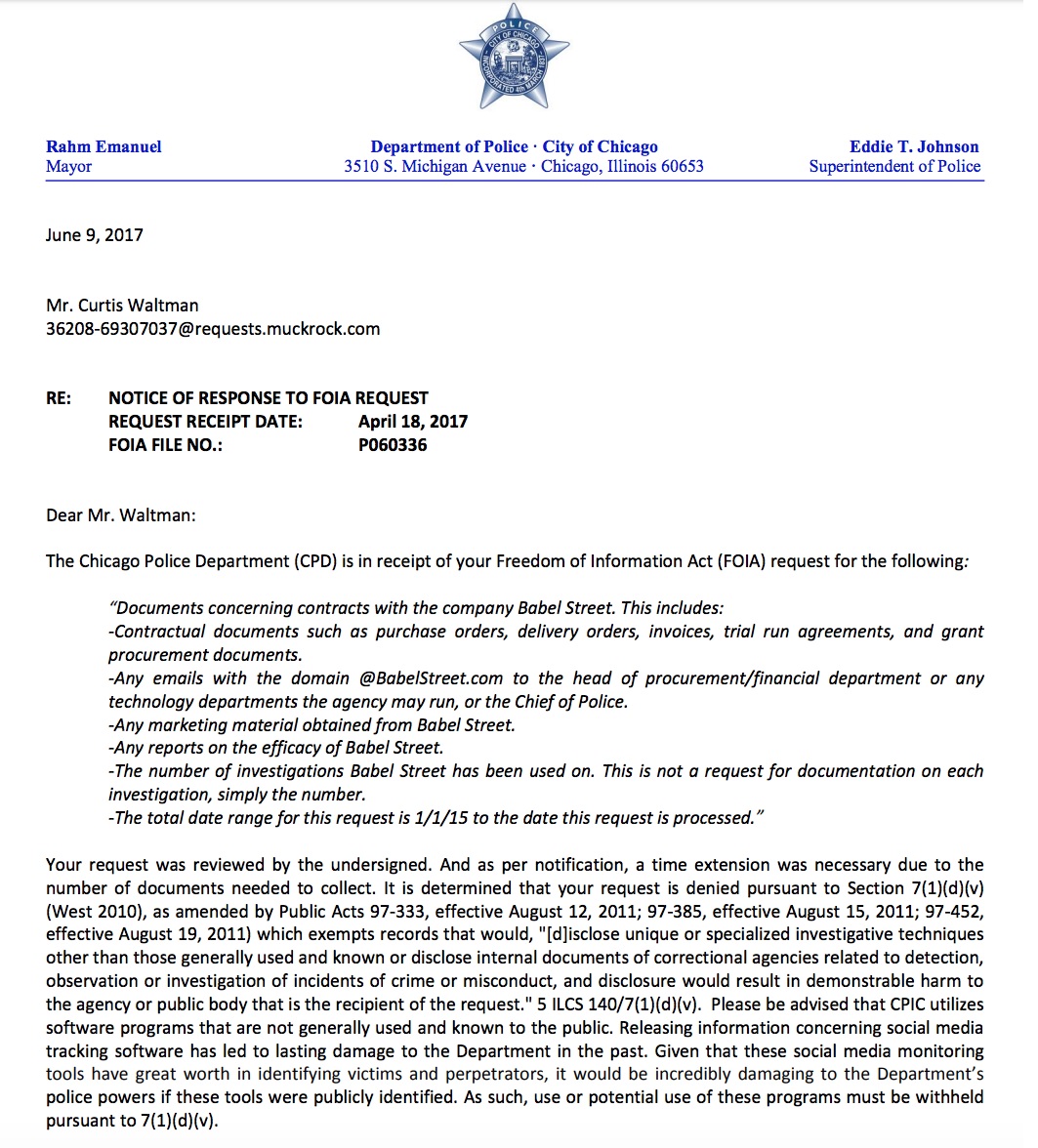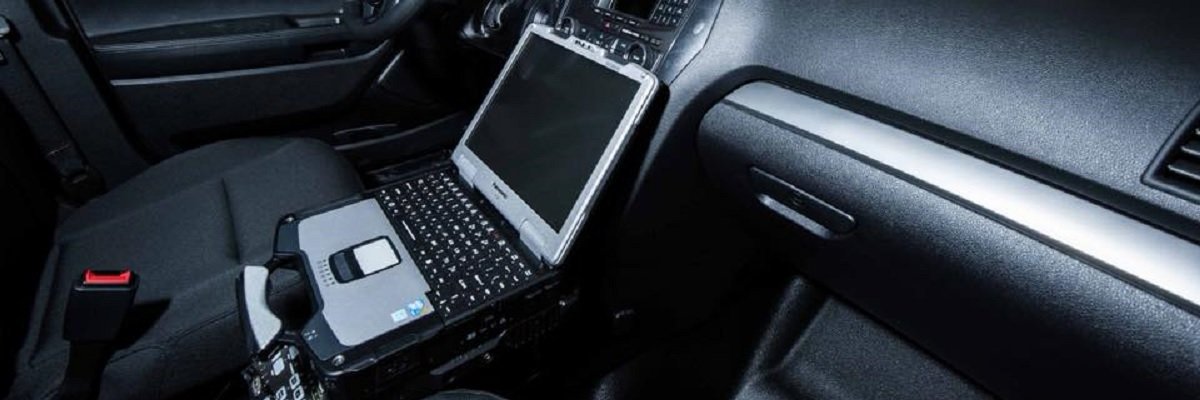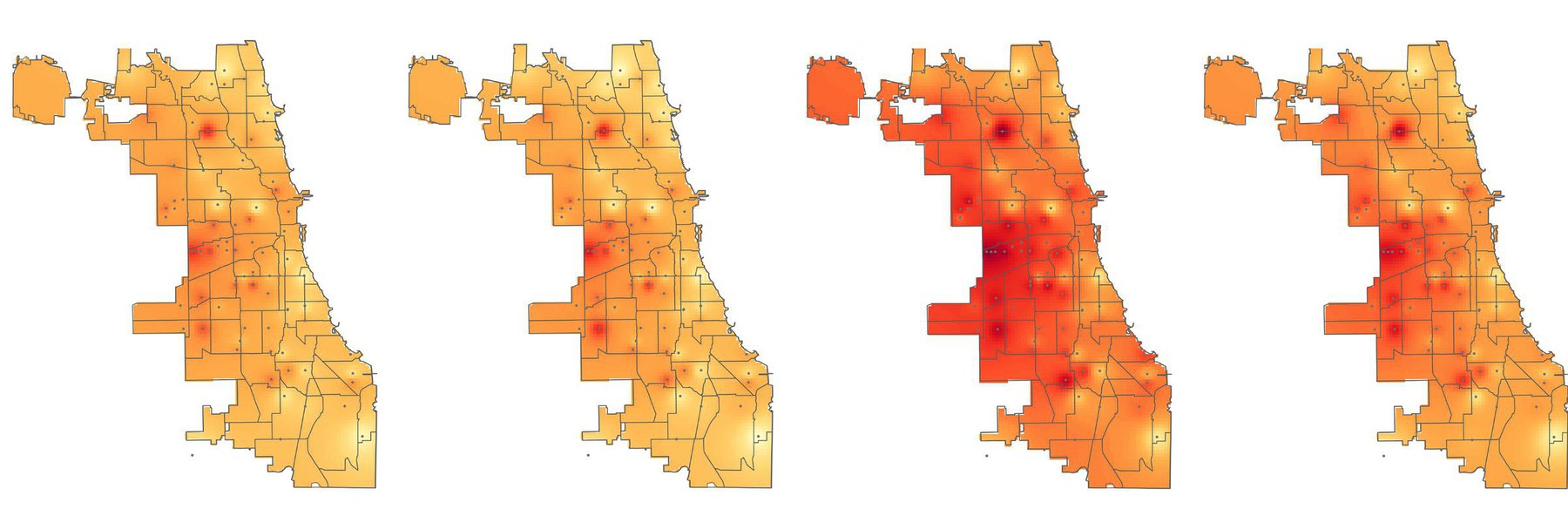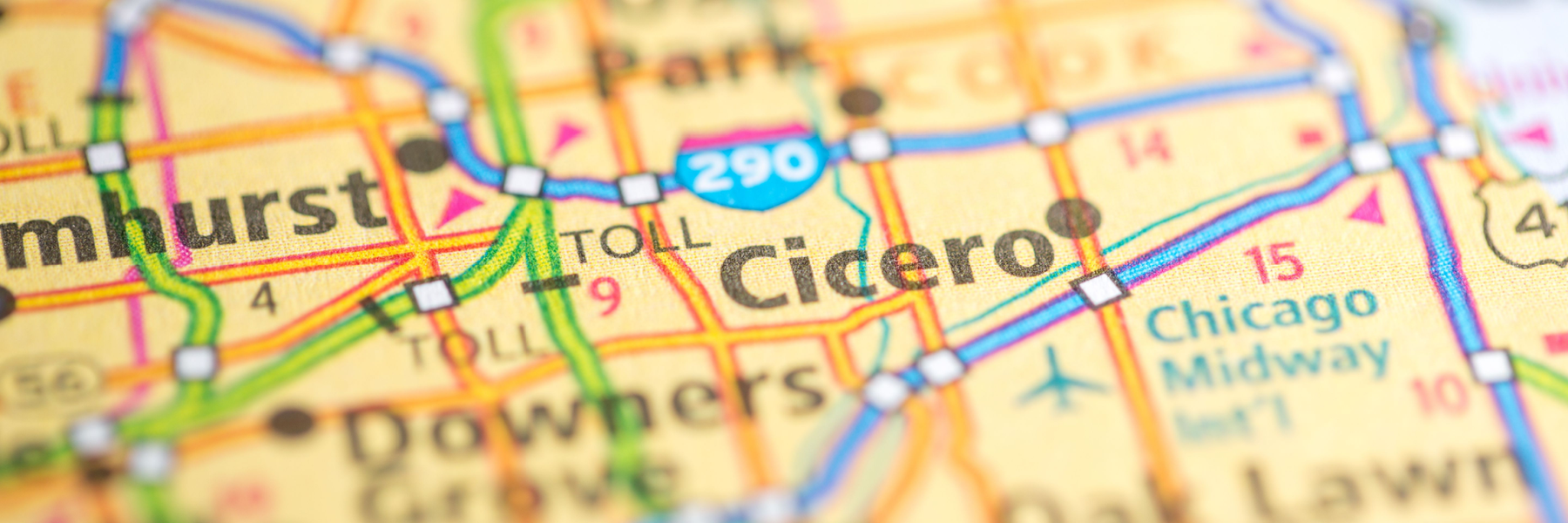Chicago Police Department can’t use blanket “investigatory techniques” exemption to deny records regarding controversial social media surveillance technology according to a recent appeal determination by the Illinois Assistant Attorney General.
On June 9th of last year, CPD denied a request for records concerning Babel Street, a social media surveillance tool similar to Geofeedia, arguing that it fell under 5 ILCS 140/7(1)(d)(v), an Illinois FOIA law exemption giving license to law enforcement to protect documents disclosure of which they feel would harm investigations and the agency by giving up specialized investigatory techniques and equipment.

In response to an appeal, Illinois Assistant Attorney General Laura Harter disagreed. Writing:
“Although some records provided by CPD for this office’s confidential review do appear to be responsive, CPD has not explained, nor is it apparent to this office, how disclosure of records of communications with Babel Street and information about its products and services would cause harm to CPD, given that CPD has not contracted with Babel Street for any products or services. Accordingly, this office concludes that CPD has not sustained its burden of demonstrating by clear and convincing evidence that the records in question are exempt from disclosure pursuant to section 7( 1)( d)( v) of FOIA. To remedy its improper denial, this office requests that CPD disclose to Mr. Waltman the records responsive to his request.”
So far, It has been notoriously difficult to nail down which law enforcement agencies are using Babel Street’s products, and how. Hopefully, with the release of the records they can shed further light on the police’s use and possible abuse of this technology.
Read the AAG’s ruling embedded below, and follow the request on the request page.
Image via Chicago Police Department Facebook




